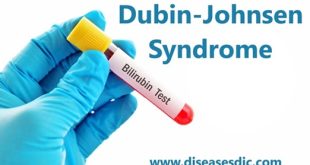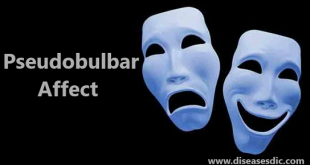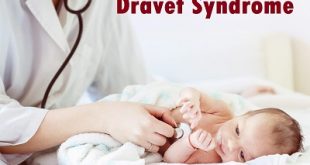Overview
Dementia is a term used to describe a group of symptoms affecting memory, thinking and social abilities severely enough to interfere with your daily life. It isn’t a specific disease, but several diseases can cause dementia.
Though it generally involves memory loss, memory loss has different causes. Having memory loss alone doesn’t mean you have dementia, although it’s often one of the early signs of the condition.
Alzheimer’s disease is the most common cause of a progressive dementia in older adults, but there are a number of other causes of dementia. Depending on the cause, some dementia symptoms might be reversible.
Are there different types of dementia?
Dementia can be divided into three groups:
- Primary (diseases and conditions in which dementia is the main illness).
- Secondary (dementia due to another disease or condition).
- Reversible dementia-like symptoms caused by other illnesses or causes.
Primary dementia
Types of primary dementia include:
- Alzheimer’s disease: This is the most common type of dementia. Two abnormal proteins build up in your brain: tau and amyloid proteins. These proteins disrupt communication between nerve cells in your brain. Nerve cells die, starting in one area and spreading as more nerve cells die in other areas. Symptoms include short-term memory loss, confusion, personality and behavior changes. Trouble talking, remembering distant memories and issues with walking happen later in the disease.
- Vascular dementia: This is the second most common type of dementia. It’s caused by conditions such as strokes or atherosclerosis, which block and damage blood vessels in your brain. Symptoms include memory problems, confusion and trouble concentrating and completing tasks. The decline may appear suddenly (following a major stroke) or in steps (following a series of mini strokes). Risk factors include high blood pressure, diabetes and high cholesterol levels. About 15% to 25% of people with dementia have vascular dementia.
- Lewy body dementia: This condition involves the buildup of clumps of proteins — called Lewy bodies — in your brain’s nerve cells. Lewy bodies damage nerve cells. Symptoms include movement and balance problems, changes in sleep patterns, memory loss, planning and problem-solving difficulties, and visual hallucinations and delusions. About 5% to 10% of dementias are Lewy Body dementia.
- Frontotemporal dementia (FTD): This dementia results from damage to the frontal and temporal lobes of your brain. The damage is caused by the buildup of abnormal proteins in these areas. It causes changes in social behavior, personality, and/or loss of language skills (speaking, understanding or forgetting the meaning of common words) or motor coordination. FTD is a common cause of early dementia, often occurring in people between the ages of 45 and 64.
- Mixed dementia: This is a combination of two or more types of dementia. The most common combination is Alzheimer’s disease with vascular dementia. It’s most common in people 80 years of age and over. It’s often hard to diagnose because symptoms of one dementia may be more obvious and/or many symptoms of each type overlap. The decline is faster in people who have mixed dementia compared with those who only have one type.
What are the 7 stages of dementia?
The stages of dementia are loosely grouped into mild, moderate, and severe categories by some doctors. However, there is another system of staging for it.
- Stage 1: No cognitive decline.
- Stage 2: Mild cognitive decline.
- Stage 3: Moderate cognitive decline, for example, dementia impairment like memory lapses, and losing objects daily.
- Stage 4: Moderately severe cognitive decline, for example, poor short-term memory, forgetting personal details, and difficulty with basic math. This is usually the longest stage of dementia.
- Stage 5: Moderately severe cognitive decline, for example, increasing problems planning or organizing, disorientation, and may no longer be able to live alone.
- Stage 6: Severe cognitive decline, for example, problems recognizing friends and family members, and memory loss that worsens.
- Stage 7: Very severe cognitive decline. This is the final stage of dementia. Body systems decline, and communication is limited.
Patients may seem to fall into two different stages at the same time, depending on what symptoms they are experiencing.
Causes of Dementia
The most common causes of dementia include:
Degenerative neurological diseases. These include:
- Alzheimer’s disease
- Parkinson’s disease
- Huntington’s disease
- Some types of multiple sclerosis
These diseases get worse over time.
Vascular disorders. These conditions affect the blood circulation in your brain.
- Traumatic brain injuries caused by car accidents, falls, concussions, etc.
- Infections of the central nervous system. These include meningitis, HIV, and Creutzfeldt-Jakob disease.
- Long-time alcohol or drug use
- Certain types of hydrocephalus, a buildup of fluid in the brain
Some reversible causes of dementia include:
- Alcohol or substance use disorder
- Tumors
- Subdural hematomas, blood clots beneath the outer covering of the brain
- Normal-pressure hydrocephalus, a buildup of fluid in the brain
- Metabolic disorders such as a vitamin B12 deficiency
- Low levels of thyroid hormones, called hypothyroidism
- Low blood sugar, called hypoglycemia
- HIV-associated neurocognitive disorders (HAND)
What increases the risk for dementia?
- Age: The strongest known risk factor for dementia is increasing age, with most cases affecting those of 65 years and older.
- Family history: Those who have parents or siblings with dementia are more likely to develop dementia themselves.
- Race/ethnicity: Older African Americans are twice more likely to have dementia than whites. Hispanics 1.5 times more likely to have dementia than whites.
- Poor heart health: High blood pressure, high cholesterol, and smoking increase the risk of dementia if not treated properly.
- Traumatic brain injury: Head injuries can increase the risk of dementia, especially if they are severe or occur repeatedly.
Signs and symptoms
Dementia affects each person in a different way, depending upon the underlying causes, other health conditions and the person’s cognitive functioning before becoming ill. The signs and symptoms linked to dementia can be understood in three stages.
Early stage: The early stage of dementia is often overlooked because the onset is gradual. Common symptoms may include:
- Forgetfulness
- Losing track of the time
- Becoming lost in familiar places
Middle stage: As dementia progresses to the middle stage, the signs and symptoms become clearer and may include:
- Becoming forgetful of recent events and people’s names
- Becoming confused while at home
- Having increasing difficulty with communication
- Needing help with personal care
- Experiencing behaviour changes, including wandering and repeated questioning
Late stage: the late stage of dementia is one of near total dependence and inactivity. Memory disturbances are serious and the physical signs and symptoms become more obvious and may include:
- Becoming unaware of the time and place
- Having difficulty recognizing relatives and friends
- Having an increasing need for assisted self-care
- Having difficulty walking
- Experiencing behaviour changes that may escalate and include aggression.
General complications of dementia
Possible complications of dementia, regardless of its cause, include the following:
- Loss of previous ability to function or care for self
- Loss of previous ability to interact with others
- Reduced lifespan
- Increased infections within the body
As the disease progresses, additional complications may include:
- Forgetting recent events or conversations
- Difficulty performing more than one task at a time
- Difficulty solving problems
- Taking longer to perform more difficult activities
- Language problems, such as trouble finding the names of familiar objects
- Misplacing items
- Getting lost on familiar routes
- Personality changes and loss of social skills
- Losing interest in things previously enjoyed, flat mood
- Difficulty performing tasks that used to be easy, such as balancing a checkbook
- Playing complex games such as bridge
- Learning new information or routines
- Forgetting details about current events
- Forgetting events in your own life history, losing awareness of who you are
- Change in sleep patterns, often waking up at night
- Difficulty reading or writing
- Poor judgment and loss of ability to recognize danger
- Using the wrong word, mispronouncing words, speaking in confusing sentences
- Withdrawing from social contact
- Hallucinations, arguments, striking out, and violent behavior
- Delusions, depression, agitation
- Difficulty doing basic tasks, such as preparing meals, choosing proper clothing, and driving
- Difficulty swallowing both foods and liquids
- Incontinence
How is dementia diagnosed?
To diagnose dementia, doctors first assess whether a person has an underlying, potentially treatable, condition that may relate to cognitive difficulties. A physical exam to measure blood pressure and other vital signs, as well as laboratory tests of blood and other fluids to check levels of various chemicals, hormones, and vitamins, can help uncover or rule out possible causes of symptoms.
A review of a person’s medical and family history can provide important clues about risk for dementia. Typical questions might include asking about whether it runs in the family, how and when symptoms began, changes in behavior and personality, and if the person is taking certain medications that might cause or worsen symptoms.
The following procedures also may be used to diagnose dementia:
Cognitive and neurological tests. These tests are used to assess thinking and physical functioning. These include assessments of memory, problem solving, language skills, and math skills, as well as balance, sensory response, and reflexes.
Brain scans. These tests can identify strokes, tumors, and other problems that can cause dementia. Scans also identify changes in the brain’s structure and function. The most common scans are:
- Computed tomography (CT), which uses X-rays to produce images of the brain and other organs
- Magnetic resonance imaging (MRI), which uses magnetic fields and radio waves to produce detailed images of body structures, including tissues, organs, bones, and nerves
- Positron emission tomography (PET), which uses radiation to provide pictures of brain activity
Psychiatric evaluation. This evaluation will help determine if depression or another mental health condition is causing or contributing to a person’s symptoms.
Genetic tests. Some dementias are caused by a person’s genes. In these cases, a genetic test can help people know if they are at risk for dementia. It is important to talk with a genetic counselor before and after getting tested, along with family members and the doctor.
Blood tests. It is now possible for doctors to order a blood test to measure levels of beta-amyloid, a protein that accumulates abnormally in people with Alzheimer’s. Several other blood tests are in development. However, the availability of these diagnostic tests for Alzheimer’s and related dementias is still limited.
Early detection of symptoms is important, as some causes can be treated. However, in many cases, the cause of dementia is unknown and cannot be treated. Still, obtaining an early diagnosis can help with managing the condition and planning ahead.
How is dementia treated?
When a parent, partner, or someone else you love gets diagnosed with dementia, you want to do everything possible to help them, including their memory, thinking skills, mood, and behavior.
It’s a lot to take in. But there are steps that can help.
These include working with their doctor to treat their dementia symptoms and any other conditions they may have. There are also other kinds of therapies that may help with their daily life. And everyday habits also matter, such as exercise, good nutrition, staying social, doing things that challenge their mind, and getting good sleep.
Medications
No medication can cure dementia. But some may help with some of the symptoms for a time. And doctors may prescribe other meds to treat problems brought on by dementia, such as depression, trouble sleeping, or irritability.
Cholinesterase inhibitors such as donepezil (Aricept), galantamine (Razadyne), and rivastigmine (Exelon) slow the breakdown of a brain chemical involved in memory and judgment.
Memantine (Namenda) helps control a different brain chemical needed for learning and memory. Sometimes doctors prescribe memantine along with donepezil in a combination drug (Namzaric) for moderate to severe dementia.
Antidepressants, especially selective serotonin reuptake inhibitors (SSRIs), can improve low mood and irritability.
Anxiolytics such as lorazepam (Ativan) or oxazepam (Serax) can ease anxiety or restlessness.
Antipsychotic medicines such as aripiprazole (Abilify), haloperidol (Haldol), olanzapine (Zyprexa), and risperidone (Risperdal) can help control feelings and behaviors such as aggression, agitation, delusions, or hallucinations.
Therapies
These approaches might help jog your loved one’s memory and thinking skills — or at least give them pleasure and brighten their day. Make sure anything they try helps their quality of life and doesn’t make them feel frustrated or overwhelmed.
Reminiscence therapy might include things like talking with your loved one about their hometown, school days, work life, or favorite hobbies. It can be done one-on-one or in groups as part of an organized therapy. The person leading the session might use music from your loved one’s past, or things like photos or treasured items, to help.
Cognitive stimulation therapy (CST) is a structured program for groups of people with mild to moderate dementia. At meetings, the group does mentally engaging activities, like talking about current events, singing, playing word games, or cooking from a recipe.
Reality orientation training goes over basic things like the person’s name, and the date and time. They might have signs with that information placed around their home. Some people find this to be too much or even patronizing. If it’s not working for your loved one, drop it.
Lifestyle Changes
Even when someone has dementia, their daily habits can affect how they feel. The same things that are good for their heart and the rest of their body are also going to help their mind — and their mood.
Stay active. Whether it’s a fitness class for seniors or other physical activity such as walking, dancing, and gardening, it counts. Of course, you’ll want to make sure their workouts are safe for them to do, and their abilities might be different depending on whether they are in the early, middle, or later stages of dementia (and what other conditions they may have). Research shows that exercise may slow down dementia symptoms such as thinking problems, and ease anxiety or depression
Stay active. Whether it’s a fitness class for seniors or other physical activity such as walking, dancing, and gardening, it counts. Of course, you’ll want to make sure their workouts are safe for them to do, and their abilities might be different depending on whether they are in the early, middle, or later stages of dementia (and what other conditions they may have).
Prioritize good sleep. For many people with dementia, symptoms can be worse later in the day. So encourage a calm routine. It helps for your loved one to avoid caffeinated tea and coffee, especially in the evening, and to limit daytime naps. Keep the end of the day quiet, without a blaring TV.
Focus on foods. What your loved one eats will affect their health, including their brain. Good habits may even have the power to slow dementia. You may have heard of the MIND diet. It combines the traditional Mediterranean diet and the DASH diet (which seeks to lower high blood pressure).
Palliative care
Palliative care is a kind of care for people who have a serious illness. It’s different from care to cure the illness. Its goal is to improve a person’s quality of life—not just in body but also in mind and spirit.
Care may include:
- Tips to help the person be independent and manage daily life as long as possible.
- Medicine. While medicines can’t cure dementia, they may help improve mental function, mood, or behavior.
- Support and counseling. A diagnosis of dementia can create feelings of anger, fear, and anxiety. A person in the early stage of the illness should seek emotional support from family, friends, and perhaps a counselor experienced in working with people who have dementia.
Prevention
There’s no sure way to prevent dementia, but there are steps you can take that might help. More research is needed, but it might be beneficial to do the following:
- Keep your mind active. Mentally stimulating activities, such as reading, solving puzzles and playing word games, and memory training might delay the onset of dementia and decrease its effects.
- Be physically and socially active. Physical activity and social interaction might delay the onset of dementia and reduce its symptoms. Aim for 150 minutes of exercise a week.
- Quit smoking. Some studies have shown that smoking in middle age and beyond might increase your risk of dementia and blood vessel conditions. Quitting smoking might reduce your risk and will improve your health.
- Get enough vitamins. Some research suggests that people with low levels of vitamin D in their blood are more likely to develop Alzheimer’s disease and other forms of dementia. You can get vitamin D through certain foods, supplements and sun exposure.
More study is needed before an increase in vitamin D intake is recommended for preventing dementia, but it’s a good idea to make sure you get adequate vitamin D. Taking a daily B-complex vitamin and vitamin C also might help.
- Manage cardiovascular risk factors. Treat high blood pressure, high cholesterol and diabetes. Lose weight if you’re overweight. High blood pressure might lead to a higher risk of some types of dementia. More research is needed to determine whether treating high blood pressure may reduce the risk of dementia.
- Treat health conditions. See your doctor for treatment for depression or anxiety.
- Maintain a healthy diet. A diet such as the Mediterranean diet — rich in fruits, vegetables, whole grains and omega-3 fatty acids, which are commonly found in certain fish and nuts — might promote health and lower your risk of developing dementia. This type of diet also improves cardiovascular health, which may help lower dementia risk.
- Get good-quality sleep. Practice good sleep hygiene, and talk to your doctor if you snore loudly or have periods where you stop breathing or gasp during sleep.
- Treat hearing problems. People with hearing loss have a greater chance of developing cognitive decline. Early treatment of hearing loss, such as use of hearing aids, might help decrease the risk.
 Diseases Treatments Dictionary This is complete solution to read all diseases treatments Which covers Prevention, Causes, Symptoms, Medical Terms, Drugs, Prescription, Natural Remedies with cures and Treatments. Most of the common diseases were listed in names, split with categories.
Diseases Treatments Dictionary This is complete solution to read all diseases treatments Which covers Prevention, Causes, Symptoms, Medical Terms, Drugs, Prescription, Natural Remedies with cures and Treatments. Most of the common diseases were listed in names, split with categories.







